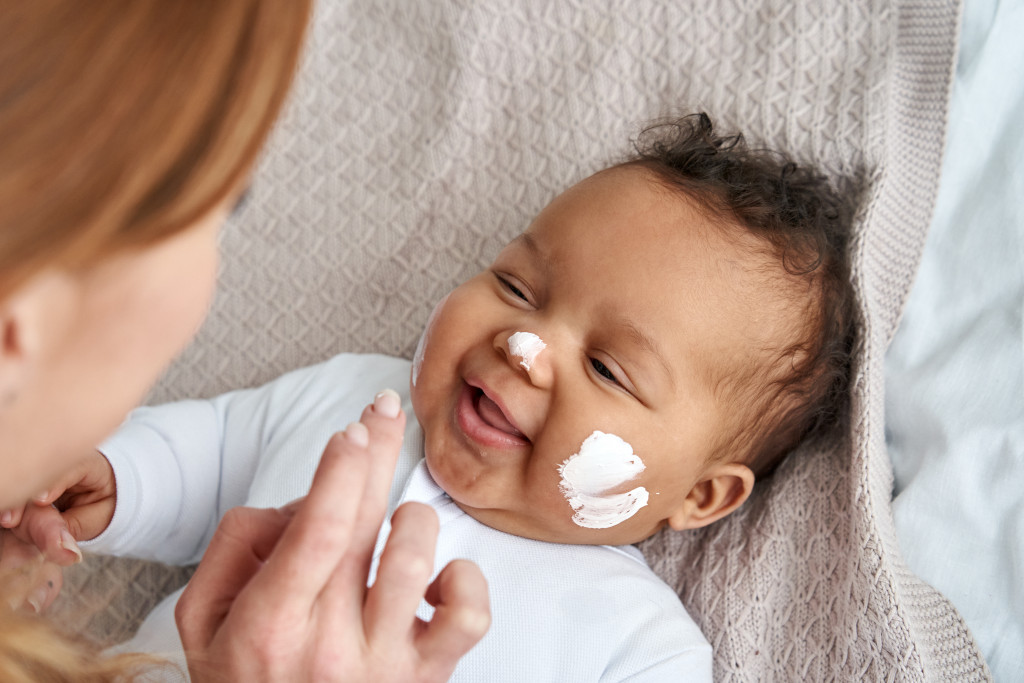Taking care of a baby for the first time can seem daunting. You want to ensure you are doing everything right to give your little one the best start in life. But with so many questions about parenthood, many remain clueless about the right ways to go about baby care. This article aims to educate first-time parents on the best practices for caring for their bundle of joy.
As a first-time parent, one of your main priorities is keeping your baby safe. You might be surprised to learn that many parents make common mistakes concerning baby care. Here are some of the best practices for keeping your little one safe and healthy:
Always wash your hands before handling your baby.
It might seem like a no-brainer, but you’d be surprised how many parents forget to do this simple step. According to a 2019 study, infections account for 25 percent of 2.8 million neonatal deaths yearly. That’s mainly due to bacteria passed from the hands to the baby.
So, regular handwashing is essential to protecting your baby from harmful germs. Always wash your hands for 20 seconds, or use an alcohol-based hand sanitizer as an alternative. Additionally, avoid touching your face while handling your baby. This simple act can also help reduce the risk of passing on harmful bacteria.
When you make it a habit to wash your hands regularly, you’ll protect your baby, yourself, and other family members. This way, you can all enjoy good health and quality time together.
Make sure your baby’s sleeping environment is safe.
Sudden Infant Death Syndrome (SIDS) is the leading cause of death for babies aged one month to one year. SIDS happens when a baby dies during sleep without any explanation. However, several studies show that a baby’s exposure to an unhealthy sleeping environment can increase their risk of SIDS.
In simple ways, you can increase your baby’s safety while sleeping. For instance, you can put your baby to sleep on their back on a firm surface, such as a crib or bassinet with a tight-fitting sheet. Eliminating soft objects and bedding from your baby’s sleep area is also vital. The Centers for Disease Control and Prevention (CDC) recommends using a wearable blanket to keep your baby warm during sleep.
You should also create a safe sleeping environment for your baby by sharing a room with them for at least the first six months. This practice can reduce the risk of SIDS by up to 50 percent. Not to mention, it’ll make nighttime feedings and comforting much easier for you.
Invest in hypoallergenic skin care.
Babies have sensitive skin, which makes them more prone to skin irritation and allergies. To prevent this, use a lotion containing hypoallergenic ingredients when moisturizing your baby’s skin.
When buying these products, look for ones free of fragrances, dyes, parabens, sulfates, and other harsh chemicals. You can also ask your pediatrician for their recommendations on the best hypoallergenic skin care products for your baby.
Additionally, don’t forget to apply sunscreen when you and your little one go outdoors. Choose a baby-safe sunscreen with an SPF of at least 15 and reapply it every two hours. And if you’re using a spray sunscreen, apply it in a well-ventilated area to avoid inhaling the chemicals. Following these simple tips can protect your baby’s delicate skin from harmful irritants and allergens.
Vaccinate your baby on time.
Immunizations are one of the most important things you can do to protect your baby’s health. They help prevent severe and life-threatening diseases. According to the CDC, all babies should receive their first dose of the DTaP (diphtheria, tetanus, and acellular pertussis) vaccine at two months old. They should then get four more doses of DTaP, given at four- to six-week intervals, between the ages of four and six.
Other recommended vaccines for babies include the polio vaccine, Hib vaccine, hepatitis B vaccine, influenza (flu), and rotavirus. Following the CDC’s immunization schedule is essential to ensure your baby gets protected from disease.
You can get more information on which vaccines your baby needs and when they should get them by talking to your child’s healthcare provider. It’s a great way to ensure your little one stays healthy.
As a first-time parent, it’s normal to feel overwhelmed and unsure of what you’re doing. However, remember that you’re not alone in this journey. There are plenty of resources available to help you care for your baby. The above information is just a starting point. For more detailed guidance, speak to your baby’s healthcare provider or consult a parenting book. With the proper knowledge and support, you can confidently care for your little one and create beautiful memories.

